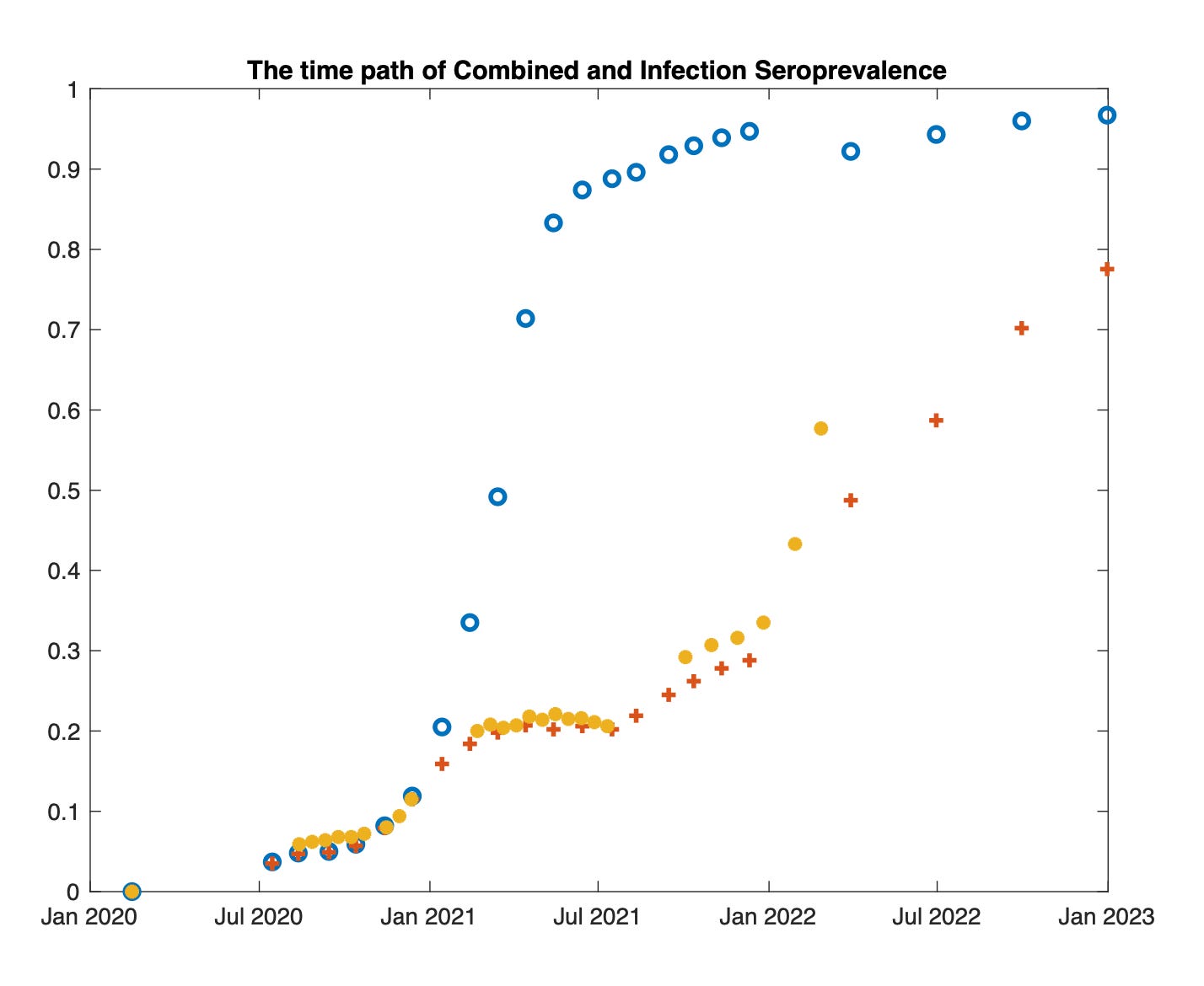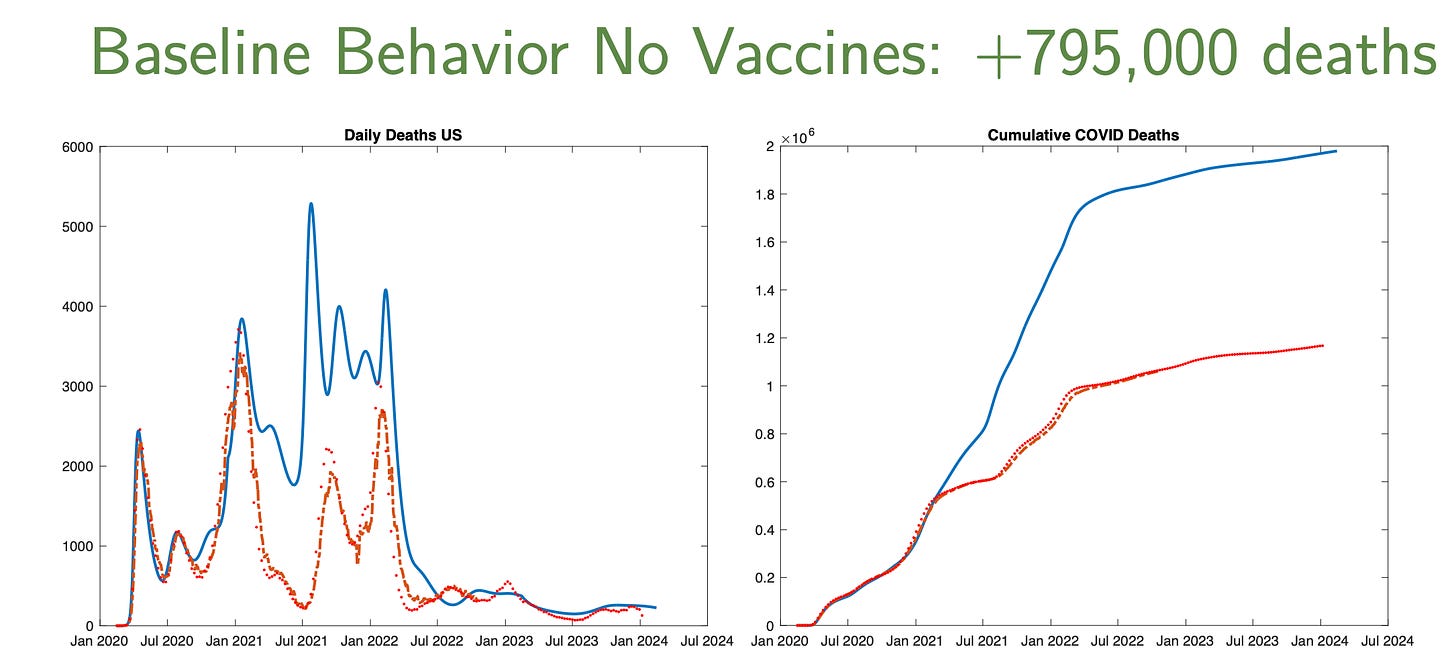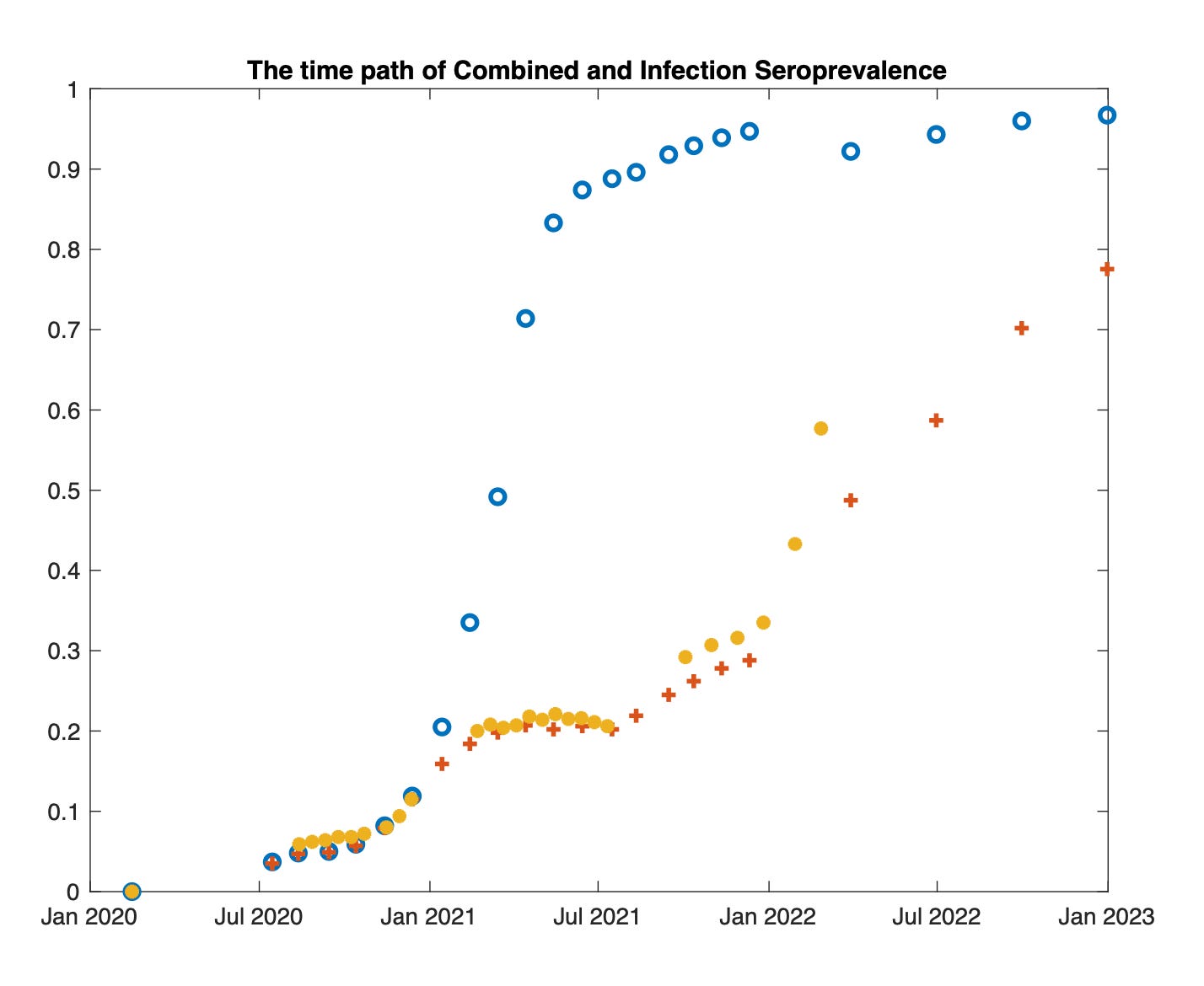
We’re in the middle of 2024, and the “experts” still won’t give up their ridiculous defense of Covid mandates.
By now, the evidence against the effectiveness of Covid policies and so-called “interventions” is overwhelming. Mask mandates were a spectacular failure, with the most heavily masked populations often seeing worse results than cities, counties, or countries with little to no masking.
Vaccine mandates and passports were an unmitigated disaster; coercion created mistrust, and resistance and in some cases may have led to unnecessary, damaging side effects.
School closures, as we have clearly learned, were a tremendous, world-changing disaster. And it was made all the more frustrating by the fact that we had examples across the globe showing that they weren’t needed.
None of that’s stopped those committed to maintaining the fantasy of Covid mandates from desperately seeking to validate their belief system. And that desperation just led to one of their most absurd claims yet.
Covid Social Distancing and Vaccines Saved 800,000 Lives, Don’t Ya Know?
Two researchers from formerly reputable institutions, the University of Colorado, Boulder and the University of California, Los Angeles, just recently published a paper claiming to have cracked the fantastical code on just how effective the social distancing, lockdowns, mask mandates, and Covid vaccines were at saving lives during the pandemic.
And what do you know? They found that the policies they supported were tremendous, highly successful interventions! Who would have ever guessed?
According to the headline, they claim that “Mitigating behavior and vaccines saved ≈ 800,000 American lives.”
How did they arrive at this awe-inspiring conclusion? With a model, of course!
Mechanism: ≈ 68% of Americans got vaccinated before first infection
First Covid infection much less dangerous after vaccinationBack of the envelope estimate of lives saved
Full structural model of epidemic with behavior and vaccines
This is what we’re dealing with here; a model based on a “back-of-the-envelope” estimate of lives saved, with their esteemed educated guess as to how many Americans were vaccinated before becoming infected.
Well, guessing might not be accurate…completely guessing is more like it. According to their methodology, they used serology data on the timing of infections and vaccinations, though, of course, without direct links between individuals who were infected and those who were vaccinated, there’s little we can learn from population-wide serology data.
Not to mention that to create their model on the benefits of vaccination, they examined data from just 30 states on “COVID-19 deaths by vaccination status.”
Serology data on timing of infections and vaccinations
30 states: COVID-19 deaths data by vaccination status
But as anyone with even a cursory knowledge of Covid data knows, this type of data is hopelessly corrupted.
Thanks to public health experts and their pharmaceutical company allies, most jurisdictions only count individuals as being vaccinated starting 14 days after their second dose. Those with just one dose are effectively viewed as “unvaccinated” for purposes of data collection. This type of counting skews the reliability of deaths by vaccination status, as does the fact that there were mountains of mistakes made by public health administrators and jurisdictions regarding data collection throughout the pandemic.
But especially when it comes to deaths by vaccination status. Not to mention that the supposed efficacy of Covid vaccines is highly reliant on when the data was measured. Even the CDC’s own data in late 2023 effectively acknowledged that the original vaccination series had waned to reach zero efficacy.
Regardless, the poor methodology used to create this model is evidenced by one of their first examples of measuring combined and infection seroprevalence.
The blue dots in this photo represent “cumulative percent infected plus vaccinated without infection” while the red and yellow are “cumulative percent ever infected.”

First, these numbers rely on seroprevalence estimates, which while useful are hardly definitive. Secondly, the researchers apparently ignore that the percentage of infected skyrockets starting in late December 2020, accelerating significantly after the vaccines were introduced.
They also then suggest that behavioral modifications were responsible for saving nearly 800,000 lives because they delayed infections until after vaccination.
This though, is nonsense.
The charts below use the blue line as the estimate of what would have resulted if behavior had remained the same, with no vaccination. The red line is the actual course of the pandemic.


But these charts assume as a given that behavior was responsible for lowering the curve of deaths in 2020 and early 2021, then use a faulty assumption of vaccine efficacy based on corrupted data from 30 states to suggest that there were hundreds of thousands of lives saved.
Their model relies on their assumptions being accurate when we know for a fact that they aren’t. How do we know? Because states and countries that did not have similar behavioral modifications often had better results.
They ignore this fact to create the model. Literally.
“Behavioral response had a lot in common across U.S. States,” they say. But we know that’s not true. People living in California, particularly in 2021 and 2022, had very different experiences than those living in Florida or Iowa. Mask mandates and vaccine passports continued in California and New York deep into 2022, while Florida banned vaccine passports and had virtually no masking by early-mid 2021.
They claim that behavioral modifications were responsible for “delaying deaths,” but there’s no evidence that that’s true since different areas with different responses often had similar results.
Somehow, they also then claim that people “would have gotten infected without protection of vaccines,” a nonsensical fantasy given we know that the vaccines provide zero protection against infection.
So they both credit behavior with reducing infections and delaying deaths, based on nothing, but also credit vaccines with reducing infections, and thus deaths. Also based on nothing.
Their assumptions prove their results, a classic failure of modeling.
It also ignores the importance of more transmissible, less virulent variants. Omicron resulted in an explosion of infections, though with lower mortality rates. Testing also exploded in 2021 and 2022, meaning that more people could test positive and thus be counted as “Covid deaths” without it being the underlying cause.
Of course, this also doesn’t account for the harms these policies caused; the increased deaths from lockdowns, despair, and substance abuse and addiction. The harms from increased obesity and learning loss, or physical abuse suffered by children no longer in schools.
This model is a farce; a politically motivated tool for media outlets to use to justify their advocacy and the activism of people like Fauci and organizations like the CDC. “Covid vaccines and masking and behavior saved lives, because we assumed they did,” would be an accurate headline for the research paper.
Even though all the evidence suggests a much more complicated picture.
You’d think these efforts would have ended by now, given that we’ve reached the middle of May in 2024. But as long as there are researchers committed to upholding their ideological biases, we’ll continue seeing poorly reasoned, misleading publications.
And boy oh boy are there researchers committed to upholding their ideological biases, almost as if they’d put in place yet again the mandates for their next pandemic.
Republished from the author’s Substack
Disclaimer
Some of the posts we share are controversial and we do not necessarily agree with them in the whole extend. Sometimes we agree with the content or part of it but we do not agree with the narration or language. Nevertheless we find them somehow interesting, valuable and/or informative or we share them, because we strongly believe in freedom of speech, free press and journalism. We strongly encourage you to have a critical approach to all the content, do your own research and analysis to build your own opinion.
We would be glad to have your feedback.
Source: Brownstone Institute Read the original article here: https://brownstone.org/

